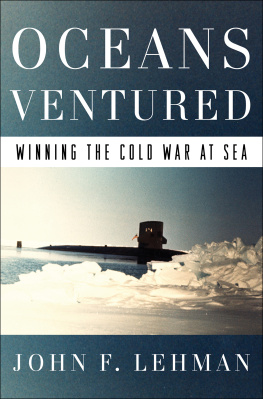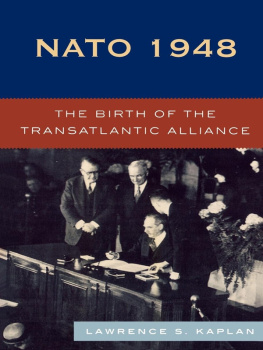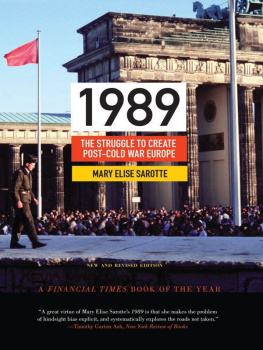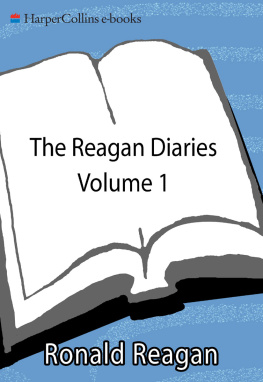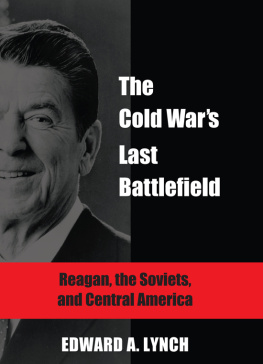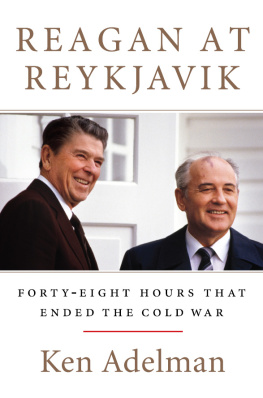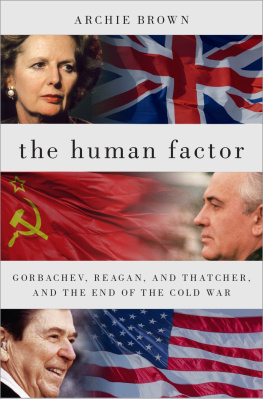
OCEANS VENTURED
ALSO BY J OHN L EHMAN
On Seas of Glory
Command of the Seas
Making War
OCEANS
VENTURED
WINNING THE COLD WAR AT SEA
JOHN LEHMAN

W. W. N ORTON & C OMPANY
Independent Publishers Since 1923
New York | London
Copyright 2018 by John Lehman
All rights reserved
First Edition
For information about permission to reproduce selections from this book, write to
Permissions, W. W. Norton & Company, Inc., 500 Fifth Avenue, New York, NY 10110
For information about special discounts for bulk purchases, please contact
W. W. Norton Special Sales at specialsales@wwnorton.com or 800-233-4830
Book design by Marysarah Quinn
Production manager: Anna Oler
Jacket design by Brian Barth
Jacket photograph: NH L45-286Courtesy of the Naval History & Heritage Command
ISBN: 978-0-393-25425-9
ISBN: 978-0-393-25426-6 (e-book)
W. W. Norton & Company, Inc., 500 Fifth Avenue, New York, N.Y. 10110
www.wwnorton.com
W. W. Norton & Company Ltd., 15 Carlisle Street, London W1D 3BS
F OR MY SEA-DADDIES
Lt. Cmdr. John Lehman, Sr., USNR
Adm. Arleigh Burke, USN
Navy Secretary John Warner
Adm. Bud Zumwalt, USN
Adm. Jim Holloway III, USN
MCPO John Tower, USNR
M Y INTEREST IN geopolitics began when I was listening to my father, John Lehman, Sr., at the dinner table. He was what Annapolis grads called a ninety-day wonder, having left his career as an industrial engineer in the middle of World War II to be commissioned at Navy Officer Candidate School. He had been skipper of LCS-18, the most heavily armed class of ship per ton in the U.S. fleet. He saw almost constant action with the Fifth and Third Fleets during the final twelve months of the Pacific War. While he loved the navy and was offered a career commission after the war, he went back to the business world instead but read widely in history and current affairs. While he rarely talked about his own experiences of the war, he commented freely on the progress of the Cold War and American policy. Those family seminars sparked my intense interest in military naval and foreign policy in college and graduate school.
In addition to the then-required core curricula of Aristotle and Plato, Thucydides and Cicero, Macaulay and Gibbon, Spykman and Mahan, I loved reading contemporaries like Samuel Huntington, Henry Kissinger, and Robert Strausz-Hup. As an undergraduate at St. Josephs University, I studied under James Dougherty, a protg and colleague of Strausz-Hup. At that time I met Richard Allen, a co-founder of the Georgetown University Center for Strategic Studies (now the independent Center for Strategic and International Studies) who later became President Ronald Reagans first national security adviser. I worked for a number of years as a summer assistant to Allen.
At Cambridge University, I studied under Sir Elihu Lauterpacht, my director of studies, who was to become my dear and late lamented friend; E. H. Carr, the noted socialist-realist; and F. H. Hinsleyall very much in the realist school. Back at the University of Pennsylvanias Foreign Policy Research Institute to complete my doctorate in American foreign policy, I worked directly under Strausz-Hup, William Kintner, and my dissertation supervisor Ambassador Covey Oliver, and through them I met Henry Kissinger.
The intellectual foundations of national security strategy were the focus of my academic studies, but I was equally fascinated by the actual operational realities of national power. Strausz-Hup and Kissinger, both army veterans of World War II, often pointed out that diplomatic power was the shadow cast by military and naval power. Operational practice interested me even more than theory, and as an undergraduate I joined the Ready Reserve, and after graduation from Cambridge, I was commissioned as a naval intelligence officer. I then earned my navy wings, first as a bombardier-navigator and later as a pilot.
As a Squadron Augment reservist, I served short, temporary active-duty tours several times in Vietnam and more often in the Mediterranean with squadrons aboard the aircraft carriers Saratoga, Independence, Forrestal, and America. Periodic active duty in operational squadrons, which I continued for twenty-five years, kept me immersed in the realities of tactics and strategy, and the shortcomings and opportunities involving hardware, technology, and blue-water operations.
I could not have pursued this nonstandard career in the Naval Reserve without the help of what in the navy are known as sea-daddies. The first was, of course, my father. The next was the retired admiral and former chief of naval operations (CNO) Arleigh Burke. He was the mentor who sponsored my navy commissioning. Another was the retired admiral and former CNO James Holloway, a naval aviator and strategist with distinguished service in combat in World War II, Korea, Vietnam, and the mortal combat of Washington, D.C. I first met him aboard Saratoga off Vietnam, and we became fast friends. He was an invaluable mentor.
It was because of the combination of national security education and some real-world experience that Dick Allen recruited me to the National Security Council staff when he was appointed deputy national security advisor in 1969. When Allen left for the private sector, I worked directly for Henry Kissinger. In that capacity I worked with George H. W. Bush during his progress through Congress, the CIA, and China.
When George H. W. Bush made his first run for the presidency in 1980, he asked me to join him as a defense adviser. After Bush dropped out of the running, Dick Allen, national security policy adviser to Ronald Reagan, asked me to join his team. I became, in effect, the naval expert on the Reagan team. Since I was simultaneously participating in the Sea Plan 2000 planning effort, which was then under way at the Naval War College at Newport, and in the bipartisan effort of Senators Henry Scoop Jackson (D-WA) and John Tower (R-TX) to forge a strong alternative to the policies of President Jimmy Carter, I became a two-way conduit between these groups and candidate Reagan and his team. Thus when Senator Tower, a World War II navy combat veteran and a master chief petty officer in the Naval Reserve, was appointed chairman of the Republican Platform Committee in 1980, he appointed me to oversee the drafting of the platforms national security planks. So it was that the senatorial policy study group, the Sea Plan 2000 study, and the Reagan Maritime Strategy became as one.
In 1981, when Dick Allen was appointed national security adviser to the president, he recruited me to the National Security Council staff because of my combination of national security education and some real-world experience. That same year Senator Tower became chairman of the Senate Armed Services Committee. He, along with Senator Jackson, was decisive in convincing Reagan to accept Allens urging that I be chosen as navy secretary. Senator John Warner (R-VA), a veteran of both the navy and the marines and a former navy secretary himself, urged me to seek that job and helped shepherd my nomination through the Senate. Adm. Bud Zumwalt, while CNO, helped me to complete my navy flight training and to understand the racial problems in the navy. They also became my sea-daddies.
O UTLAW O NE , J OKER ; your target is angels twenty-eight, bearing 040 at ninety-one miles closing.
Roger that, Joker, got him. Joker was the call sign for the E-2C Hawkeye radar surveillance aircraft from the navys newest aircraft carrier, USS
Next page
